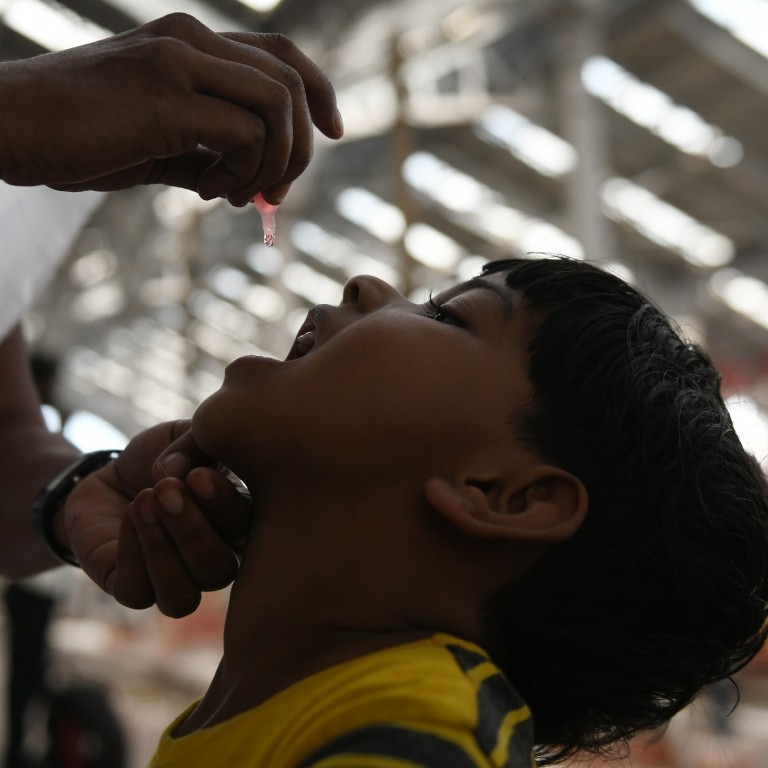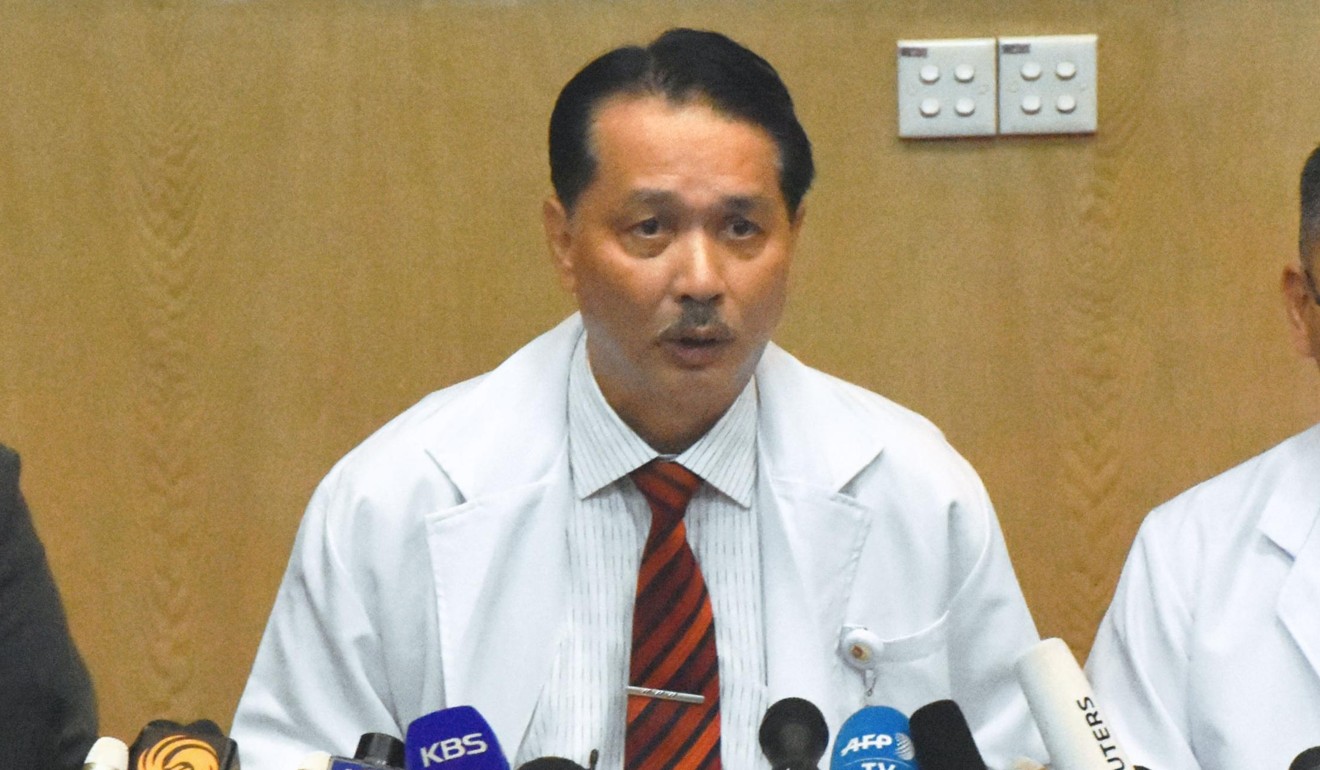
Malaysian baby diagnosed with polio, in country’s first reported case in nearly 30 years
- The three-month old boy tested positive for the disease after being admitted to hospital with a fever and muscle weakness
- Malaysia was declared polio-free in 2000, after reporting its last known case of the disease in 1992
The three-month old baby boy from Tuaran, in Malaysia’s Sabah state on Borneo island, tested positive for polio on Friday after being admitted to hospital with a fever and muscle weakness, Director General of Health Noor Hisham Abdullah said in a statement.
“The patient is being treated in an isolation ward and is in stable condition, but still requires assistance to breathe,” he said.
Malaysia was declared polio-free in 2000, after reporting its last known case of the disease in 1992.

Noor Hisham said tests showed the child was infected with a polio strain that shared genetic links with the virus detected in the Philippine cases.
This is a worrying situation as the spread of the disease … can only be stopped with polio immunisation.
Checks in the area where the baby lived showed 23 of 199 children aged between two and 15 had not received the polio vaccine, he said.
“This is a worrying situation as the spread of the disease … can only be stopped with polio immunisation,” Noor Hisham said, adding vaccination rates needed to be above 95 per cent to prevent infection.
There is no cure for polio, which invades the nervous system and can cause irreversible paralysis within hours, but it can be prevented with vaccines.
Dog medicine goes viral in S Korea over claims it cures human cancer
The virus spreads rapidly among children, especially in unsanitary conditions in underdeveloped or war-torn regions where health care access is limited.
Noor Hisham said faecal samples from the infected child’s close contacts and his surroundings had been collected in a bid to detect the polio virus.
The authorities have also stepped up monitoring of acute flaccid paralysis (AFP) cases, a common sign of acute polio, he said.

Noor Hisham advised parents to ensure their children were fully vaccinated.
Public health expert T Jayabalan said he was not surprised by the polio outbreak because immunisation was not mandatory in Malaysia.
“This first case probably is the tip of the iceberg. There is a very high possibility of a rising trend,” he warned.
Jayabalan said there was a small group of people who refused vaccination on account of misinformation.
65 dead before Christmas as anti-vaxxers fuel Samoa measles epidemic
Public mistrust in vaccines, government mismanagement, and religious and ethical concerns within Muslim communities in Indonesia and Malaysia, have had an effect on the region’s falling inoculation rates.
World unprepared for pandemic that could kill ‘80 million in 36 hours’
The immunisation rates for measles across Southeast Asia has fallen below the 95 per cent mark which experts say is required to fully protect a community.
Last year, the Indonesian government’s campaign to protect children with the measles-rubella vaccine faced resistance by Muslim parents who were worried about the medicine’s halal status due to the minute amounts of pig DNA included in the vaccine.
The traces of pork gelatin are used to stabilise the medicine against the effects of temperature.
Additional reporting by AFP

